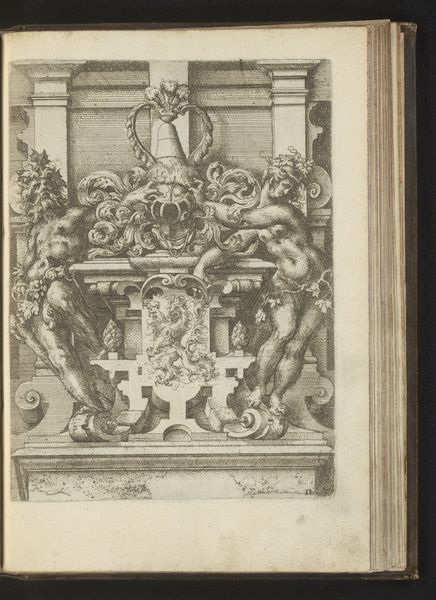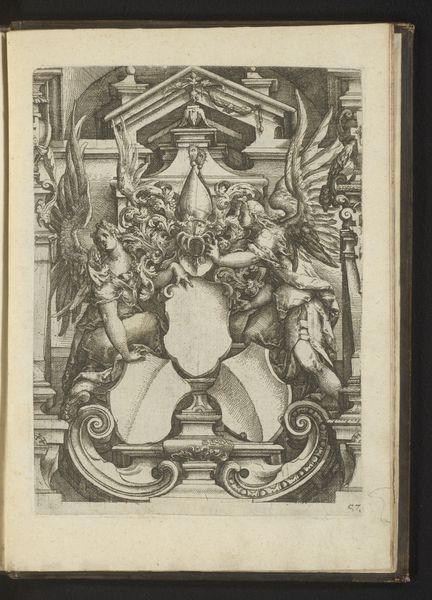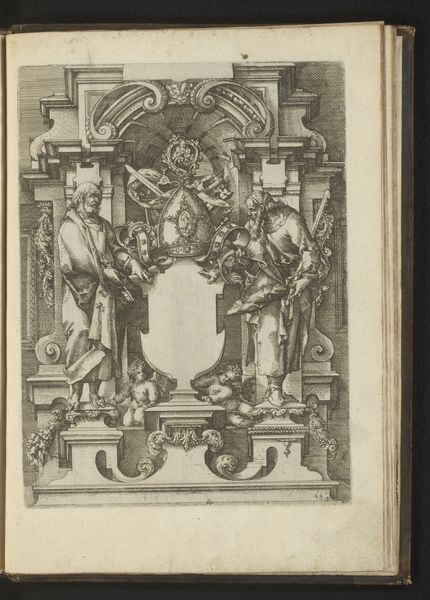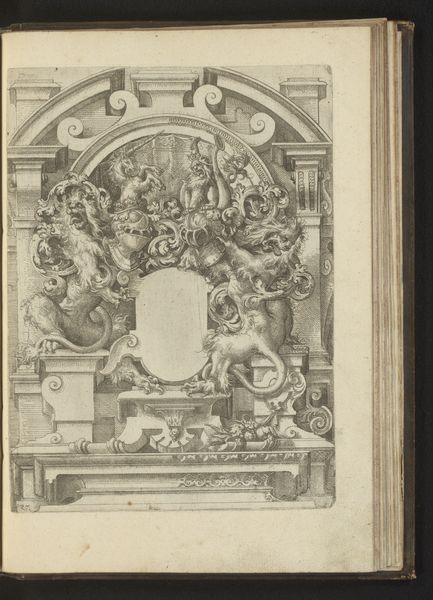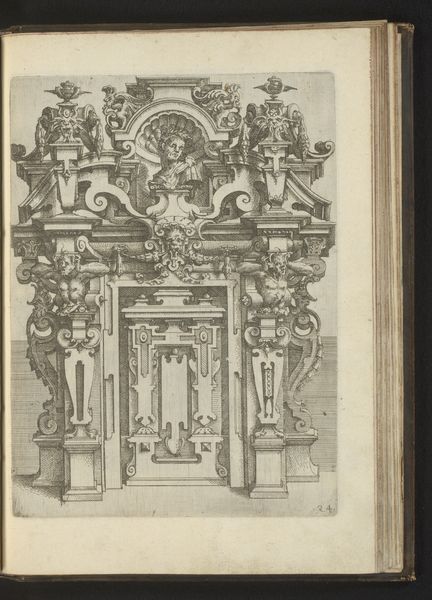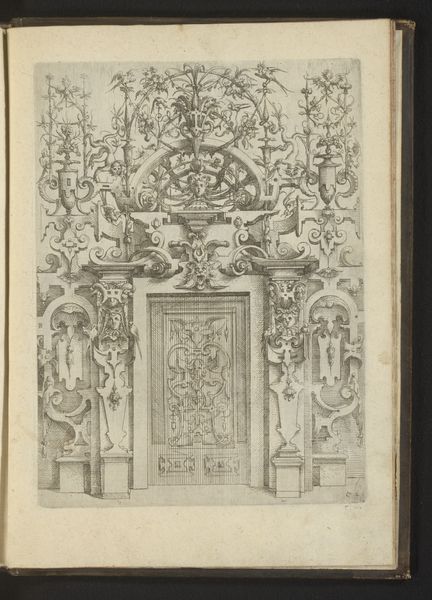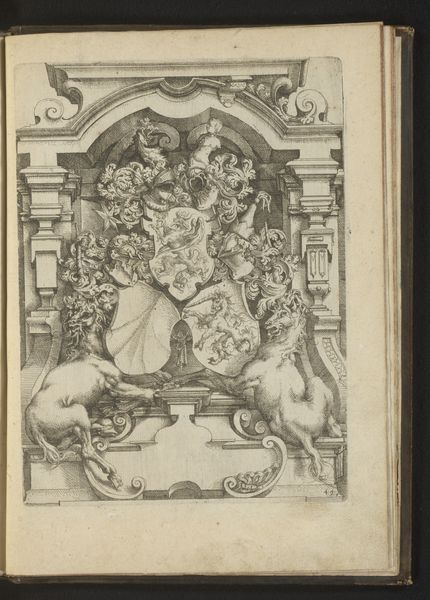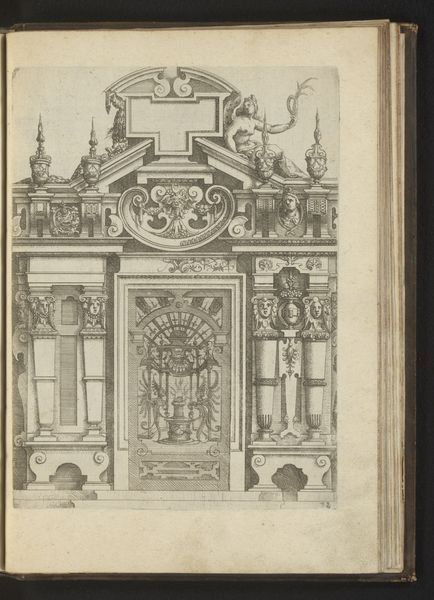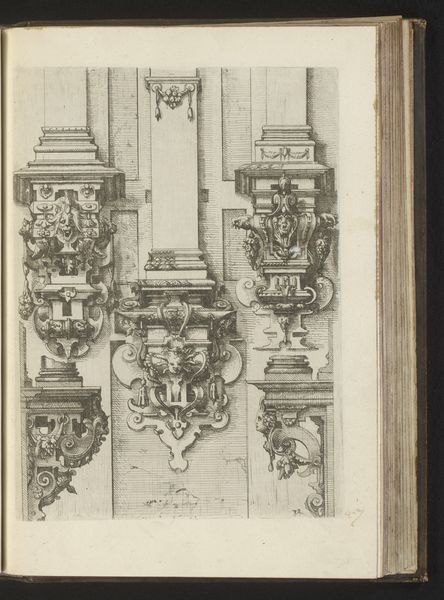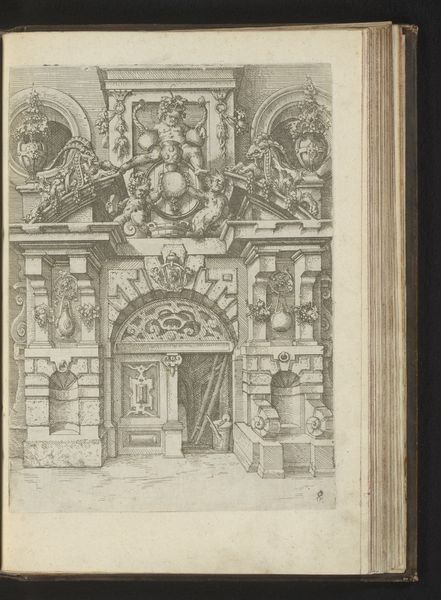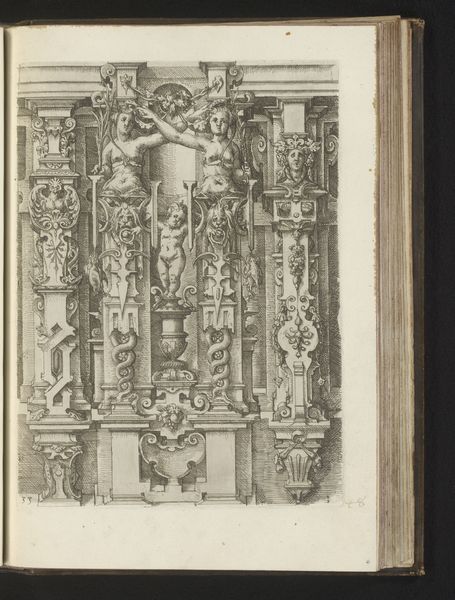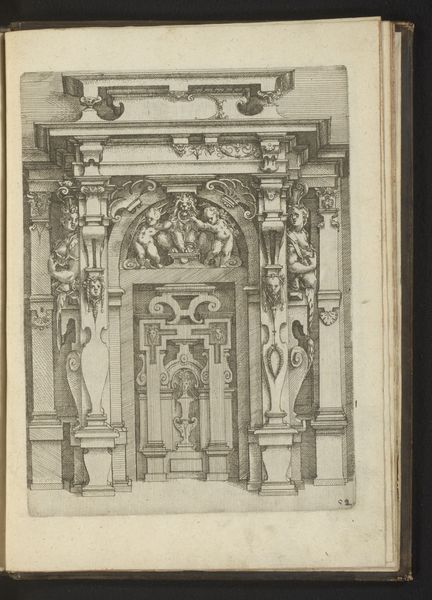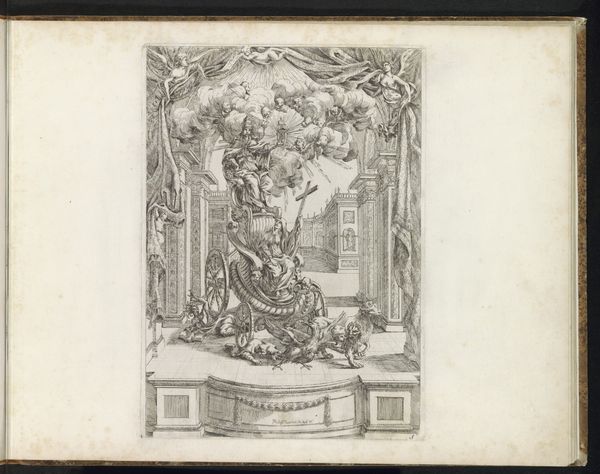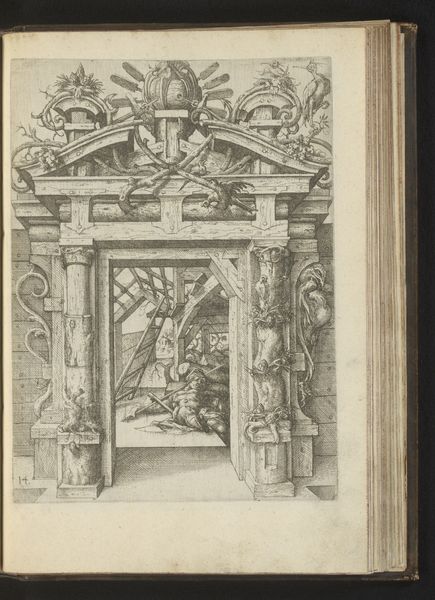
drawing, print, metal, paper, woodcut, pen, engraving
#
drawing
#
baroque
#
pen drawing
# print
#
metal
#
old engraving style
#
paper
#
woodcut
#
pen
#
engraving
Dimensions: height 247 mm, width 185 mm
Copyright: Rijks Museum: Open Domain
Curator: What a strikingly theatrical composition. The density of detail is almost overwhelming. Editor: This is "Cartouche on a pedestal, flanked by two large birds of prey," a print by Wendel Dietterlin, dating from between 1593 and 1595. Dietterlin was known for his ornamental and architectural designs. Curator: Architectural, indeed! It's fascinating how he uses the cartouche—essentially an empty frame—as a stage for this explosion of forms. The birds, almost heraldic, and the swirling foliage… It’s a showcase of line and texture. Editor: I think its worth pointing out Dietterlin worked at a time of considerable political and religious upheaval. Ornamental prints like these played a role in asserting status and power. The imagery here suggests a desire for control and dominance. Curator: Certainly, that commanding symmetry contributes to a feeling of imposing authority. But observe the incredible dynamism. The lines surge and undulate, almost fighting against the rigid structure. There's a real tension between order and chaos. Editor: Exactly. And this kind of idealized design could have been intended to demonstrate power through projecting perfection at a time of turbulence and fear of the future. It is also important to consider where artwork like this appeared. Often engravings would appear within books circulated among the elite. Curator: So the work functions as both a celebration of power and perhaps, also, a visual mechanism to quell public insecurities? Editor: Yes, precisely. Though it presents us a vision of control, it may in reality be reflecting significant social instability. Curator: Well, Dietterlin certainly created a layered piece. On the one hand, this complex choreography of lines holds the eye; on the other, its original context gives it even deeper meaning. Editor: A fantastic reminder that even seemingly "decorative" arts can offer profound insights into their time.
Comments
No comments
Be the first to comment and join the conversation on the ultimate creative platform.
